#The Redeemed Christian Church Of God
Text
HOW ONE OF MY MANY EX- GIRLFRIENDS BECAME SHOCKED THAT I AM NOW A PASTOR ||Pastor EA Adeboye
Pastor EA Adeboye
Before I was born again, I was a very rotten boy. I had two things going for me that made it extremely easy to have girlfriends. I was a sportsman and I was also a photographer. I’m yet to meet a lady who can say no when you say you want to snap her; I haven’t met one, particularly if you have the right kind of language.“Things like “Ahh, whoa! What am I looking at? Where has…
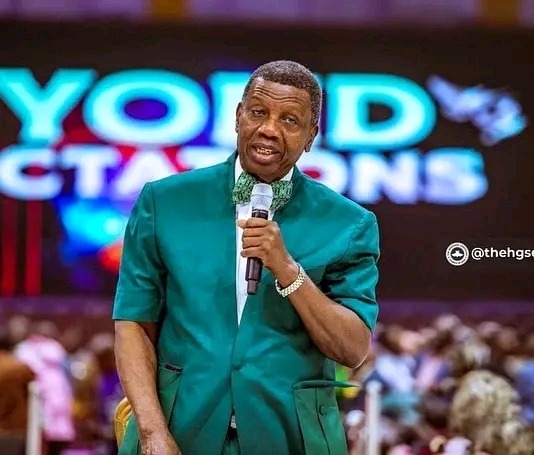
View On WordPress
0 notes
Text

“ 'For He made Him who knew no sin to be sin for us, that we might become the righteousness of God in Him.' (2Cor. 5:21) In His death, Christ bore the enmity of the whole world. In doing so, He entered into every hatred and element of bitterness in our lives. St. Sophrony said, 'Christ has descended into the lowest hell and is waiting for His friends to meet Him there.'
We cannot know the One who is love apart from love."
~Fr. Stephen Freeman
(Photo © dramoor 2016, church in Siberia, Russian Federation)
#churches#Lord Jesus Christ#Orthodox Christian#crucifix#travel#Siberia#Russian Federation#photography#photographers on tumblr#Fr. Stephen Freeman#St. Sophrony#Scriptures#Redeemer#Love#God
112 notes
·
View notes
Text
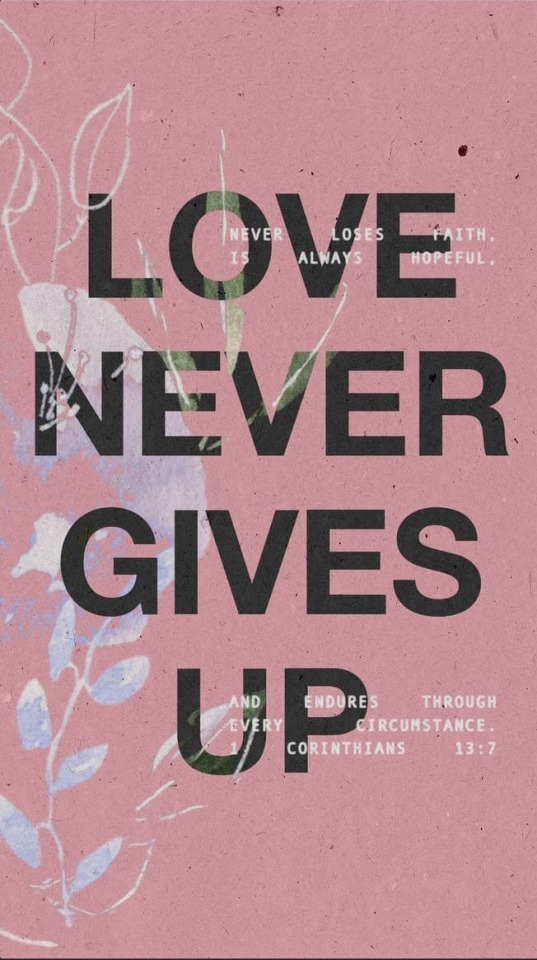
#lord jesus christ#jesusitrustinyou#belief in jesus#jesussaves#jesuslovesyou#christian faith#jesus christ#love of god#godcaresforyou#godisgood#church#jesusfreak#jesus is life#jesusisalive#jesus is our savior#jesus is love#jesusiseverything#redeemed#light of jesus#light of god#miracle#faith in god#faithbased#gospel#encourageothers#encouragement#spreadlove#share the gospel#sharethelove#freedom
10 notes
·
View notes
Text
The realization that Christianity’s core beliefs are essentially abuse culture.
#this hit me after i realized that a lot of the shit#i was raised to think about myself would leave me#an easy target for abusers#of course im getting better now but its scary to think about#think about it being fed the idea youre inheretly evil and need someone to#redeem you or else you'll suffer forever#and that fearing someone is loving them#thats not concerning things to internalize even if youve dropped the idea a god exists#and now i just feel the need to make a seperate post about the most#emotionally manipulative shit i have ever heard inside of a church#cw christianity#im sorry if a good christian reads this if youre bothered pls block me#its for your own good if you do bc i will not shut up
2 notes
·
View notes
Text
I find it really interesting how Confucius advocated for respect and reverence towards parents and people in positions of authority but you can also voice your disagreements with them. (I just started learning about him.) And it's very consistent with what is taught throughout the Bible. Like, everywhere. Like,
Honor your father and mother is in the Ten Commandments.
Proverbs talking about paying attention to your parents instruction.
Jesus rebuking people for giving money to the temple/ God as a excuse to not take care of their parents.
Instructions in Titus (?) for people to take care of parents in their old age and for church to care for widow if they don't have anyone caring for them
Instructions in Romans 13 to be subject to those in governing authorities (of course, there's the doctrine about civil disobedience but that's not the focus of this post for now)
Anyway, I think these things are more valued in Eastern cultures and more ingrained in their society as a whole because of people like Confucius and I find it interesting. There's another Christian doctrine called Common Grace that talks about how the sun rises on both God's people and the "pagans" and how anyone can observe and study the various truths in the world God has created.
But they can only see some truths and it's mixed with other false teachings. To use an analogy I've heard, it's like trying to put a puzzle together without knowing what it's supposed to be and someone threw pieces from other sets into the pile. You only know how to put it together with a Christian worldview because God's Word is "a lamp unto my path."
Anyway, I still think it's cool how Confucius observed this and strove for virtue, which is similar to the philosophers in the Greco-Roman world I think? Idk I need to learn more lol.
I've also heard a bit about the Chinese concept of the "Dao" and I don't fully understand it (maybe I should ask my friends), but apparently, John 1:1 says, "In the beginning was the Word, and the Word was with God, and the Word was God," and in Chinese, "Word" is translated as "dao." And I'm like huhhhh? They're saying Jesus is the embodiment and/ or fulfilment of their concept of dao?? Anyway, I found that super interesting and I want to explore this more at some point lol.
But like... I've heard that the New Testament writers do this too. Like taking concepts from the surrounding culture in order to explain the mysteries about God.
#okay this was not supposed to be that long lol#this was prompted by a talk within the Classical Christian Education movement#which started in the US so it's focused a lot on the western classical writing#and people are trying to figure out how to apply the principles to other parts of the world as this movement spreads#and this guy who's a missionary in China advocated for them learning their own country's cultural history#and redeeming it for God's glory#like how the early church did within the ancient Greco-Roman world#and that was like... mind blowing to me#because that's when he mentioned the 'in the beginning was the Dao'#anyway this blog has become my personal journal#so don't expect this to be the most coherent thing in the world lol
0 notes
Text
RCCG Rose of Sharon

RCCG Rose of Sharon is a vibrant spiritual haven in Vancouver, BC, embodying the essence of the Redeemed Christian Church of God. Affectionately known as RCCG ROS, this community-driven center radiates the warmth of faith, welcoming all seekers of the redeemed church experience. Nestled in the heart of Vancouver, RCCG Rose of Sharon stands as a beacon of divine connection, drawing worshipers from various walks of life. From its serene surroundings, RCCG Vancouver, often referred to as Grace Chapel RCCG or RCCG Jesus House, echoes the teachings of the Redeemed Christian Church of God. Join us in this spiritual journey, where grace and fellowship converge.
RCCG Rose of Sharon
2411 E Pender St, Vancouver, BC. V5K 2B2
604-612-3919
#Church near me#redeemed church#redeemed church near me#RCCG Rose of Sharon#rccg#redeemed Christian Church Of God#rccg ros
1 note
·
View note
Text
Glorious Days Of Stronger Naira Will Return – Pastor Adeboye
Glorious Days Of Stronger Naira Will Return – Pastor Adeboye
The General Overseer of the Redeemed Christian Church of God (RCCG), Pastor Enoch Adeboye, has declared that the “glorious days” when the Nigerian currency, naira was more valuable than its American equivalent, dollar will soon return.
Pastor Adeboye made the statement on Sunday during a sermon titled ‘Uncommon Miracles’ at the…
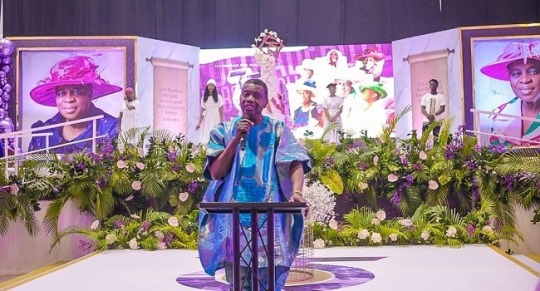
View On WordPress
0 notes
Text
Together As One (Philippians 1:1-11)
We are meant to be a common community, sharing life together, working on supporting one another and reaching out to others.
From Paul and Timothy, servants of Christ Jesus—
To all God’s people in Philippi who are in union with Christ Jesus, including the church leaders and helpers:
May God our Father and the Lord Jesus Christ give you grace and peace.
I thank my God for you every time I think of you; and every time I pray for you all, I pray with joy because of the way in which you have helped me in the work of the…

View On WordPress
#apostle paul#christian community#christian life#christian mission#christian unity#church mission#church unity#common purpose#community#community of the redeemed#disunity#faith community#god&039;s purpose#joy#mission#pauline epistles#philippians#philippians 1#prayer#purpose#shared experiences#shared purpose#sharing#spiritual community#unity
1 note
·
View note
Text

"The one desire which should move us should be, first of all, that of seeing Him face to face, who is now hid from us..".
~John Henry Newman
(Photo © dramoor 2016 Kazan, Russia)
#Orthodox Christian#churches#Christian art#Kazan Russia#travel#one desire#to see the Lord face to face#Lord Jesus Christ#God#Savior#love#Redeemer#John Henry Newman#saints#photography#photographers on tumblr#motivation
29 notes
·
View notes
Text
Hazbin Hotel Has Better Theology Than Most Modern "Christian" Stories
As a Christian who was raised in a fundie cult and escaped to now have a far healthier and vital faith, I genuinely really like this show. The songs are bops. The characters are well crafted and interesting, and likable too. The art design is bizarre but appealing.
And, as a theology nerd who studied theology as part leaving said cult and also has since gotten papers published in theology, I'm actually fairly impressed by the show's handling of theology.
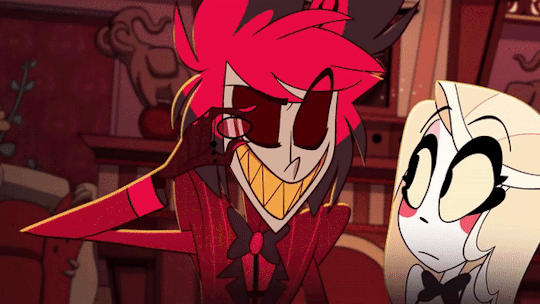
No, I'm not expecting the story to preach or even like, be explicitly Christian in a lot of ways. But it's taking a lot of the really beautiful aspects of Christian theology and re-contextualizing them in a way designed to provoke thought: by juxtaposing them with the antithesis of what you would think, by making demons heroes. In my opinion, this makes the beauty shine brighter.
Yeah, yeah, it's designed to be offensive and obscene in a lot of ways. Yet, it's never (thus far) mean-spirited. On the contrary, it seems to have a big, beating heart at its core that is perhaps best embodied by Charlie Morningstar, its protagonist and the daughter of Lucifer and Lilith.
Critique of the Church, with Caveats
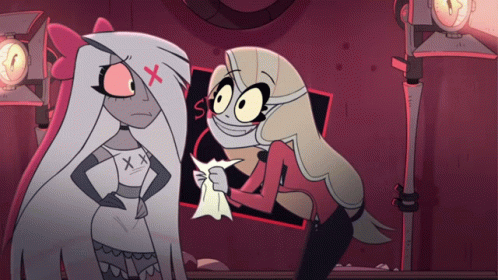
The story works best with an interpretation that heaven isn't actually heaven or God (who has been conspicuously absent), but instead as a critique of the church. Specifically, the evangelical American church, and specifically, white evangelicals. (Same as She-Ra's premise, actually).
God's absence therefore makes sense, because while Christians do believe God is present as a living reality among us, we also can't like, see him physically now. So, God being not even mentioned in HH makes it seem more like a mortal reality rather than an immortal one. Honestly I kinda hope God doesn't appear in the story, not only because I think it could cross some lines (which is admittedly personal), but also because I don't see that the story really needs it.
Adam in particular reminds me of every "theobro" on Twitter (I'm not calling it what you want me to, El*n). Basically a dudebro coopting his supposed salvation to flex in an often misogynistic way, who doesn't realize that he has absolutely no love in him and therefore is actually a worse human being than everyone he condemns on the regular.
(Which is kind of why I'm expecting Adam to wake up in hell next season...)
Think red hats. And Mark Driscoll. And, I have a list of pastors. Sigh. They advocate for how "simple" Christianity is, except they themselves make it ridiculously complicated and don't even examine what they suppose is "simple" if it requires them to take the planks out of their own eyes. "Shallow" is a better description of what they actually preach.
But what sends people to hell or heaven anyways?
Eschatology and Atonement Theory

Hazbin Hotel combines a lot of theories, throwing not only the idea of a physical hell (albeit mixed with Dante's idea of what hell is the Inferno, but to be fair a lot of the church has adopted that idea too) but the idea of annihilation, which HH calls "extermination."
See, in Christianity, there's a lot of debate about hell. Like, since 2000 years ago. The reason is because a lot of Bible verses seem to indicate hell, but others indicate the eventual redemption and salvation of absolutely everything in the universe, so you have Christian universalism tracing itself back just as long. But, setting aside universalism, people who do believe in hell tend to fall into one of two camps:
Physical hell, aka suffering for eternity, or annihilation: the idea that souls that aren't saved end up annihilated, or snuffed from existence. HH combines both of them, wherein everyone lives in hell but then every so often heaven "exterminates" a certain number of sinners.
And then you also have Catholic purgatory, which is also adapted in HH in that... for most Christians, physical hell doesn't offer the ability to redeem yourself. Chance over, you're dead. But, Catholic Christianity, which draws on ideas of praying for the dead, has the idea that people can improve themselves or be prayed out of it and into heaven. This seems to be somewhat similar to the idea of Charlie's hotel, in that sinners can improve, redeem themselves, and rise to heaven.
And, I mean, it's already kinda worked. Sir Pentious acted out Jesus' words: Greater love has no man than this, that he lay down his life for his friends (John 15:13).

But anyways, the branch of theology that deals with the afterlife is eschatology. And Hazbin Hotel takes on a related form of theology as well, a type of theology I've only seen covered in stories once before (The House in Fata Morgana): atonement theory.
Atonement theory is something I remember well from my theology 101 class, as in I remember sitting with a friend and her turning to me and being like, "okay, so we know Jesus' death and resurrection give us eternal life, but we have no idea how or why?" To which the answer was "basically, yeah."
Most of the white, American evangelical church is very "penal substitutionary atonement," but the reality is that this theory has only been popular for the past few hundred years. It's also, imo, somewhat scripturally unsound. But there are a lot of other theories, and sometimes the theories overlap. Here's a fairly decent summary. (I'm in general a believer in Christus Victor.)
So how does atonement theory tie into Hazbin Hotel? Well, essentially the scene where Charlie and Vaggie are debating with Emily, Sera, Adam, Lute, and others in heaven is them going over various atonement theories and realizing that they actually know nothing at all. How does one get to heaven? How is one saved? They don't know.
Sera criticizing Emily for asking questions was also very relatable, and I feel for Sera. She's genuinely scared but the truth will set you free, Sera. John 8:32. Anyways, the point is like... the angels are an organized religion, an evangelical church, that preaches about simplicity but mistakes shallowness for simplicity and discourages depth and discovery.
Anyways, the whole crux of theological study and atonement theories is that they should promote humility. We don't know for certain on this side of the curtain. That's okay. So what do we have to guide us?
Love. After all, God is love (1 John 4:8).
Charlie is Jesus

"Why would you endanger your immortal life for these sinners?"
Adam, the absolute worst, says the above to Charlie in the finale.
I mean... look. That's literally the premise of Christianity. That the immortal son of God comes down to earth, lives with sinners, loves us, and dies to save us. However that happens. Charlie even responds:
"They're my family!"
In other words, she loves them. Yeah, sure, they're destined for extermination, but they are going to be exterminated over her dead body.
In a lot of branches of Christianity, and even in some creeds--though I'm going to give into my pet peeves here and state that it is NOT Scriptural and relies on the faulty assumption that God is bound by time, when I think God exists outside of it--state that Jesus descended into hell after his death and took all the souls of people who were saved prior to his coming to earth to heaven. Again, I think that's small-minded at best. But, the idea that Charlie is working among them to bring them to heaven is pretty reminiscent of this idea. And I don't hate it lol.
Charlie sees worth inherent in everyone, and no matter what they've done, thinks there's a future for them. Honestly we need people like her on this earth.
Angel Dust

Angel Dust is clearly my favorite character. Bite back your shock, I know (I have a type). But his name is also a fascinating multi-layered pun.
Angel is clearly foreshadowing his endgame. Let's be real, we all know Angel is ending up as an angel. And "angeldust" is of course a name for PCP, and considering Angel's drug habits, yeah.
But, dust also has another meaning to it. See, when Adam was created in Genesis 2:7, the words in Hebrew are "apar min ha'adamah," which is translated literally as "dust of the ground." So the dust is what creates Adam, literally "ground."
In other words, I very much expect Angel Dust to end up being foiled with Adam even more so. Adam might be the first man, but Angel is the first sinner working towards redemption. And let's be real, for all Angel's flaws, he's already a better person than Adam. And if there's any hope for Adam (not that I particularly care if there is but) it'd be through realizing that he and Angel aren't actually different after all. Conversely (and not necessarily mutually exclusively), Angel might serve as a more symbolic "adam" in that he becomes the person all sinners look to for hope. Which, y'know, since "the last Adam" is also a Scriptural term for Jesus...
And so it is written, “The first man Adam became a living being.” The last Adam became a life-giving spirit. (1 Corinthians 15:45).
I fully expect Angel's arc, alongside Charlie's, to bring life and redemption for everyone around them. Maybe, maybe even the dramatic "all" of Colossians 1:20 (which means, literally, all, everything, everywhere, in the entire universe).
Closing Thoughts
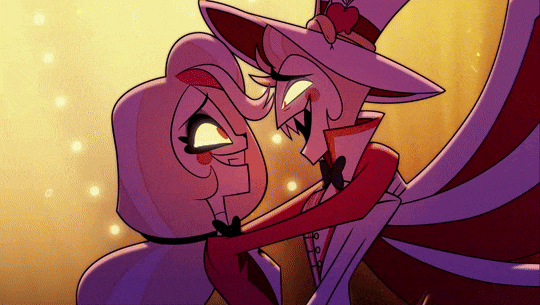
But honestly, regardless of how the story ends--besides that it will presumably end happily because HH is at its core feel-good despite being profane--season one at least has got good theology. Why? Because it's digging into the questions that theology is concerned with. It's digging into the ideas of human nature, of what it means to be a good person, of what it means to redeem oneself, of affirming how precious each individual human soul is.
It doesn't offer cheap answers, and it specifically calls out the white American evangelical church for how it purports to be simple but actually just confuses people and punishes them for things they can't help, that creates more stumbling blocks than it does shine a light. And it does it in a way that is scandalous. Offensive to many religious people.
But, y'know, Jesus was pretty scandalous too.
So I really love the story so far because it emphasizes what I find so beautiful about my religion, and criticizes the parts that have also hurt me. I don't think it's remotely aiming to be a Christian allegory or anything like that, and I don't at all think anyone has to be religious to enjoy it or gain the core message of it, but I do think that it's doing a hell of a lot more good in the world message-wise than most evangelical movies of the past 30 years.
#hazbin hotel#hamliet reviews#theology#christianity#charlie morningstar#jesus#angel dust#angel hazbin hotel
309 notes
·
View notes
Note
Sorry this is gonna be long.
Vivziepop doesn't understand the gravity of sin and hence cannot comprehend the idea of redemption.
It's so obvious Viv has had some bad experiences with the Christian church, but she is also totally unwilling to research the philosophy behind the religion. There are reasons we believe what we believe, and reasons why what we believe gets twisted and used to hurt people, and even reasons why our beliefs in their truest and purest form can STILL hurt people. But regardless of their effects, whether good or bad, there are REASONS those beliefs exist, reasons backed up by literal millennial of theology and historical/academic study.
The idea that her characters don't even understand HOW someone gets into heaven just proves she gave no thought to the other side of the argument. The premise of Hazbin Hotel is that people can change and deserve a chance to be redeemed, but she fails to illustrate any actual change or redemption.
Redemption is predicated on the recognition of what you've done wrong and the desire to do better. It is an internal battle of constant self-examination and dedication to improve. The people that make up her main cast are sinful. Whether or not their sins mean they deserved hell is up to interpretation. I'm not asking her to follow the Catechism of the Catholic church. But if these people are to be redeemed, they have to acknowledge themselves as full of fault.
Husk was a gambler. A gambling addiction is not a fun or quirky hobby. It, like any addiction, is a complete loss of control and subservience to a vice that destroys your life and relationships with other people. Alastor was a cannibal and serial killer, who took the lives of fellow humans and desecrated their remains for his own pleasures, showing a complete lack of respect for the sanctity of life. Angel Dust hurts himself over and over and over again through his addiction to pleasure and narcotics. Sometimes sin doesn't hurt other people as much as it hurts us, but it's still a sin because we are supposed to treat our bodies as temples. These are all massive flaws of the characters, sins that have overtaken their personalities and lives, and yes, they may be interesting and fun and entertaining, but that doesn't change the fact they did bad things.
Vivziepop can't redeem anyone, because she fails to set a standard of righteousness. Sin is just a mutation of virtue. It's taking prudence and turning it into greed. It's taking humility and turning it into self-flagellation. It's taking love and turning it into lust. Because of her, I'm sure, completely valid religious trauma, she fails to recognize the humanity of the people that hurt her. That they too are just people who struggle with their own sin and vice. She can't comprehend or give the benefit of the doubt that religious people have valid explanations for their beliefs.
She seems to think of heaven as just a place of stuck-up hypocrites who don't know how to have fun. She seems to think the rules and regulations of religion are just arbitrary rules someone made up for a power grab and not a detailed and dedicated attempt of humanity to understand God and his desires.
Viv's understanding of redemption is likeability. It's illustrated in Angel's scenes in episode six. Yes, Angel is being nice and kind and caring about people, but his problems were never a lack of caring about people. His problems were using substances to deal with his problems, and yes he did deny the drugs Cherry offered him, but there was no moment of reflection as to why he no longer wanted to take them. It seems more like he wants to make Husk happy with him than he actually wants to form better coping mechanisms or even a recognition that he doesn't need the drugs to numb the pain anymore now that he has a support system.
She seems to think that if a sinner is likeable, they don't deserve eternal damnation. That's why she woobifies every character she grows to like, because being a good person and sin cannot co-exist in her mind. People who are likeable cannot be bad people and thus a system that would put a likeable person in hell is rigged and stupid. But that fails to comprehend the multi-faceted of humanity and sin.
Sometimes people you love, people who are good to you, are bad people to others. Child molesters can be good friends. Rapisits can advocate for animal rights. Murderers can be good parents. A person who abused you could be someone else's best friend, and a genuinely good friend at that. A failure to recognize the complexity of virtue and vice is a failure to understand what redemption means.
She can critique the idea of perfection. She can critique the hypocrisies of the church. She can critique the tenets of religion. She can even say the things I believe in are unfair and nonsensical and evil. But she cannot make a good critique without understanding the other side of the argument. Because without that, she herself has no counter argument!
The plot of Hazbin is no longer that people can be redeemed, but that redemption is not necessary, because the rules that government heaven and hell make no sense. And that's a COMPLETELY different argument to be making.
I apologize for the length. I hope I've made some semblance of sense.
No, no apologies for the length. It was an interesting read!
Some would argue that all religions are nothing but arbitrary rules someone made up for a power grab, but it's true, there's at least supposed to be some kind of rhyme and reason to it all. In theory at least, it's supposed to improve yours and everyone else's quality of life, but that goes against Viv's theory that the only thing that matters is doing whatever you want all the time. Viv doesn't have to side with Heaven or go full blown scripture, but you can't tell me that Heaven doesn't even know what it takes for someone to get in.
Thanks for your thoughts!
198 notes
·
View notes
Note
Why do Catholics believe that their saints are already resurrected, awake, and active? I cannot think of a single time in the Bible when God resurrected someone while leaving their old body dead.
When Elisha's bones were touched by a dead man, the dead man awoke in the same body. When Jesus called Lazarus out of the tomb, Lazarus emerged still wearing his burial wrappings. Plus various examples of Jesus or an earlier prophet waking people in their own bodies on their deathbeds.
When Jesus himself rose from the dead, it was his original body, which he later took with him into the heavens.
1 Thessalonians 4:14-16 says that dead Christians sleep until the day Jesus returns, when they will be raised to meet him ahead of those who had not yet died. 1 Corinthians 15:18 likewise characterizes dead Christians as those who sleep in Christ, neither wakeful nor active.
For that matter, is there any passage that claims Jesus himself did not sleep while he was dead?
Easy, Catholics do not believe this.
Saints are active in Heaven, it is a common misconception made by those not within Catholicism, the idea that due to the power of the Resurrection, Catholics believe that the saints are not dead.
In truth the idea is more like this, the Saints have conquered death and are united to the Holy Trinity through Jesus, that does not mean they are alive through resurrection, or active on earth, but with Jesus in Heaven, and one with the Trinity.
Yes, when Jesus rose again, he rose in the body his mother had birthed, the body that had been crucified, he still had his wounds, but they no longer hobbled him, instead wearing them jewels or trophies of victory.
Catechism insists on this point, Catholics believe in God who is creator of the flesh; Catholics believe in the Word made flesh in order to redeem the flesh; Catholics believe in the resurrection of the flesh, the fulfillment of both the creation and the redemption of the flesh.
Catholics believe not just in the survival of the soul, but in the resurrection of the body, the idea that man was created to live forever and find peace and satisfaction in a way that is fully human, in both flesh and spirit.
So while Catholics believe that the soul is active, the flesh sleeps, for what is the purpose of Heaven if our souls are not meant to be active within it?
Now, here's an interesting bit of information, prior to the idea of the soul, or anima, the early church worked off of an old Jewish notion, that the breath held our essence, and would trap the final breath of a dying person so as to preserve their essence to be buried with them for the time of resurrection when God would imbue the flesh with breath or pneuma, which means spirit, or breath of life, in the New Testament.
So, God would imbue your flesh with your pneuma, which would cause it to be resurrected.
The "sleep" Paul refers to here was a common expression of the period, which implied death, it was meant to emphasize the ide that physical death for Christians was temporary.
Don't know if I'm giving sufficient answers.
122 notes
·
View notes
Text
Today is Easter Sunday.
Today is Trans Day of Visibility.
Today is day 176 of genocide.
This year the lectionary gives us Mark's account of the Resurrection, with its fearful cliffhanger ending — an empty tomb, but Jesus's body missing. And isn't that unresolved note fitting?
In the face of so much suffering across the world, it feels right to be compelled to sit — even on this most jubilant of days — with the poor and disenfranchised in their continued suffering.
Mark's account:
Just days before, the women closest to Jesus witnessed him slowly suffocate to death on a Roman cross. Now, now trudge to his tomb to anoint his corpse — and find the stone rolled away, his body gone. A strange figure inside tells them that Jesus is has risen, and will reunite with them in Galilee.
They respond not with joy, but trembling ekstasis — a sense of being beside yourself, taken out of your own mind with shock. They flee.
The women keep what they've seen and heard to themselves — because their beloved friend outliving execution is just too good to be true. When does fortune ever favor those who languish under Empire's shadow?
Love wins, yet hate still holds us captive.
I'm grateful that Mark's resurrection story is the one many of us are hearing in church this year. His version emphasizes the "already but not yet" experience of God's liberation of which theologians write: Christians believe that in Christ's incarnation — his life, death, and resurrection — all of humanity, all of Creation is already redeemed... and yet, we still experience suffering. The Kin(g)dom is already incoming, but not yet fully manifested.
Like Mark's Gospel with its Easter joy overshadowed by ongoing fear, Trans Day of Visibility is fraught with the tension of, on the one hand, needing to be seen, to be known, to move society from awareness into acceptance into celebration; and, on the other hand, grappling with the increased violence and bigotry that a larger spotlight brings.
The trans community intimately understands the intermingling of life and death, joy and pain.
When we manage to roll back the stones on our tombs of silence and shame, self-loathing and social death, and stride boldly into new, transforming and transformative life — into trans joy! — death still stalks us.
We are blessedly, audaciously free — and we are in constant danger. There are many who would shove us back into our tombs.
And of course, the trans community is by no means alone in experiencing the not-yet-ness of God's Kin(g)dom.
Empire's violence continues to overshadow God's liberation.
The women who came to tend to their beloved dead initially experienced the loss of his body as one more indignity heaped upon them by Empire. Was his torture, their terror, not enough, that even their grief must be trampled upon, his corpse stolen away from them?
The people of Gaza are undergoing such horrors now. Indignity is heaped on indignity as they are bombed, assaulted, terrorized, starved, mocked. They are not given a moment's rest to tend to their dead. They are not permitted to celebrate Easter's joy as they deserve. They are forced to break their Ramadan fasts with little more than grass.
Those of us who reside in the imperial core — as I do as a white Christian in the United States — must not look away from the violence our leaders are funding, enabling, justifying.
We must not celebrate God's all-encompassing redemption without also bearing witness to the ways that liberation is not yet experienced by so many across the world.
This Easter, I pray for a free Palestine. I pray for an end to Western Empire, the severing of all its toxic tendrils holding the whole earth in a death grip.
I pray that faith communities will commit and recommit themselves to helping roll the stones of hate and fear away — and to eroding those stones into nothing, so they cannot be used to crush us once we've stepped into new life.
I pray for joy so vibrant it washes fear away, disintegrates all hatred into awe.
In the meantime, I pray for the energy and courage to bear witness to suffering; for the wisdom for each of us to discern our part in easing pain; for God's Spirit to reveal Xirself to and among the world's despised, over and over — till God's Kin(g)dom comes in full at last.
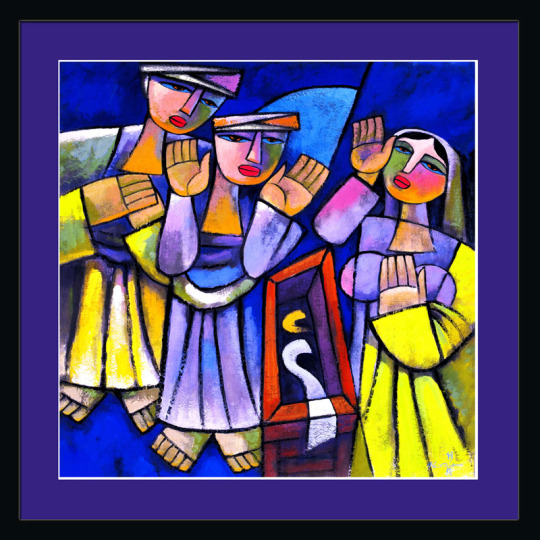
"The Empty Tomb" by artist He Qi.
44 notes
·
View notes
Note
Thoughts on how misogynistic catholicism is?
I'm not going to deny that there are definitely guys within the Catholic Church that hide their misogyny in the guise of "traditionalism." It's the result of the Fall and Original Sin; pride made them that way.
But the teachings of the Catholic Church, especially in banning pornography, elevates the status of women compare to the secular world. She's not just an object to be used for pleasure; she deserves to be respected because she's made in the image and likeness of God.
Men who calls them Catholic but fail to uphold this teaching by watching porn in close doors are not authentic Catholic.
The Catholic Church lists a bunch of female saints that the faithful can ask intercessory prayers from to help them live holy lives:
St. Joan of Arc
St. Catherine of Siena
St. Catherine of Alexandria
St. Therese de Lisieux
St. Teresa of Avila
St. Mary of Magdalene
That's all the saints that I can think of on the top of my head.
Also, we Catholics venerate the Blessed Virgin Mother Mary as the mother of God. We don't dismiss her role in salvation history by giving birth to Jesus Christ the Redeemer like other Christian sects do.
So no, the Catholic Church is not misogynistic.
If you have more specific questions, anon, feel free to ask.
#i think more can be said on this subject but i think concise and short is better because less is usually more#to encourage more discussion if anyone feels inclined#Catholic#Christianity#feminism#femininity#asks
83 notes
·
View notes
Text
You know what fucking sucks? Religion, particularly Christianity and its many forms, instills in you from birth that you are inherently unworthy, flawed to the point of unlovability, and your natural state is one of sinfulness and offensiveness to God and all that is good. You are systematically taught all your life that your worth comes in your redemption, and in the way you can let shame mold you into someone more subservient, obedient, and loyal to "God's path" or "God's ways". Your worthiness (all your self-worth, that is) is contingent on how much you can make up for the badness inside you, and become a vessel for light and God's power and whatnot. In the Mormon Church, I distinctly remember a leader very beloved by myself and many others, made his personal branding all about healing from your brokenness and how our lives can be meaningfully spent stumbling and stumbling and stumbling our way toward God again, and despite losing our way or even crawling on our hands and knees in despair or frustration, we are redeemed in our consistent "trying" for the right path and to be the right person/saint/disciple.
And then you deconstruct. However that comes about for you. The world opens up more, and you harbor more genuine feelings for others. You comprehend the limits of conditional love and perhaps glimpse at something more unconditional and free in the people who do accept you, and you feel real relief in their patience with you, that now there is so much more out here, and, and, and wow who knew that there could be so much joy in owning your choices and not having to be right and there is so much you were wrong about!! And...
There is so much you were wrong about.
And you see the gate open for you-- stretched wide with newfound possibilities, but surrounding it is so many fences. You have built up conditions around yourself and others your whole life. You still have maligned ways of understanding for some things, because embedded in you is patterns and ways of being from years, and even in your truest expression of who you are, you will find that you have been touched by what you were taught. And you were terribly wrong not in thought or opinion only but in your judgment. Your controlling. Your policing. Your defensiveness. Your need to be right. Your need to correct, to fix, to "save", to convert, even when you thought you were this vessel for light and the highest expression of love was in showing others "the right way to be" under the guise of sharing this love on a mission or unrelenting invitations or even your "example" -- you were enforcing the harshest punishment on others what you received from God: that others were not enough, and broken, and flawed.
And it feels like it was true that you are inherently sinful. That you shouldn't trust yourself. That your intuition is wrong. You are a cruel and uncaring person, and you could be domineering and unempathetic and disingenous even outside of it all, even when belief no longer burdens you, and you are in need of redemption. To fix yourself...to be worthy again.
It's hard to know and feel my way through what I need to do to make things right in a way that is not self-martyrdom, like falling before a cross and admitting your sins and expecting there to be a divine judgment received that may absolve you. The truth is, is people may not forgive you. Or if they do, they might not want you in their life again, or as closely as it was before. But you can't let shame be what motivates you or tempers you into the shape of someone contrite and pure because forgiveness is only as free as your sincere apology is, unconditionally, and...recognition that you had a choice, you are responsible for it even if not responsible for the driving factor behind it in your religious indoctrination, but you have to recognize you are *NOT* inherently flawed and unworthy. It's hard to believe that you are worthy either way of having friends, having trust, having connection, having authenticity. If you are also from a dysfunctional/abusive home, your boundaries and shame are even more blurred.
I wish I had more answers, but I think the truth is in what religion perverted: love can be the solid motivator for your change. My friendships helped me get out, the ones who chose to be patient with me. It's hard for me to not view their patience as generosity, like God's, when I was inherently undeserving of it, but I try to accept that what was more likely is that they had boundaries, and maybe that's more realistic and important than any notion of perfect, 'unconditional' love. I doubt they came to me with everything, all their thoughts or fullest self. I believe they more than likely said and did certain things to assauge me or learned what was off the table and what wasn't to talk about or do. But they also saw that I was lovable despite my flaws in a non-black and white way - holding space for contradictions like that as if it didn't mean damnation. Even the friends I have grown apart with have never treated me like I wasn't enough. That's not a concept to them. They may have drawn stricter boundaries for themselves, but they were kinder than any God I knew to always treat me with respect even in their distance, and in that way, it holds me more accountable because it acknowledges that I am capable of being a good person. An open-minded, nonjudgmental, caring, accepting person, even if imperfectly. But it's up to me and my choices. Maybe it's not about redemption, but trust. I know my deconstruction is going to probably be lifelong. I know I have so much to learn and experience. But I am grateful for the patience and love of people who saw me not through the lens of religion because they were the ones who helped me get out and get free and be the best version of myself. I hope I can rid myself of my shame and rather understand that the most important work in redemption is not about fashioning myself into an un-boundaried, unassuming, self-sacrificing, or overbearing "light" for a deity that cares only about my loyalty, with a kindness that is about changing people more than getting to just be human with them and accept them, with bludgeoning myself with amorphous and nebulous values of goodness and righteousness that have me putting on a mask to diffuse what is actually authentic about connection; that it is more so my duty and my privilege to get to *earn* the *trust* of other people through being the kind of person that I know I have had within me, perhaps not always embodied, but within me, all along -- not inherently bad, but worthy of love and friendship.
#exchristian#exmormon#exmo#exvangelical#ex evangelical#religious deconstruction#deconstruction#vent#ventposting
64 notes
·
View notes
Text
In a biblical marriage, the wife doesn’t submit to her husband because he tells her to or threatens her. She submits because he is a leader, protector, and provider that she can trust.
A man who expects his wife to submit must first ensure that he is fulfilling his God-given role to love her as Christ loves the Church. If he isn’t doing that, he should say nothing to her about submission.
In the same way, a woman who expects her husband to be a protector and provider should first make sure she is giving him room to do so (that is, by submitting to his leadership). If she is not doing that, she cannot complain about his failure to lead, protect, and provide.
Both partners in the marriage should examine their own shortcomings before pointing out those of their spouse (Matthew 7:3-5)
We recognize it is impossible to perfectly meet God’s expectations - that’s why Christ died for us! And so we can show grace to our spouse, knowing that we will always fall short and so will they.
That said, as redeemed children of God we should pray daily for the strength, patience, and wisdom to do what God expects of us, especially when it comes to loving our spouse in the way God expects us to.
Any Christian couple considering marriage should have the conversation about what biblical marriage looks like BEFORE they get married. If they don’t agree on what marriage means, they should not get married.
155 notes
·
View notes